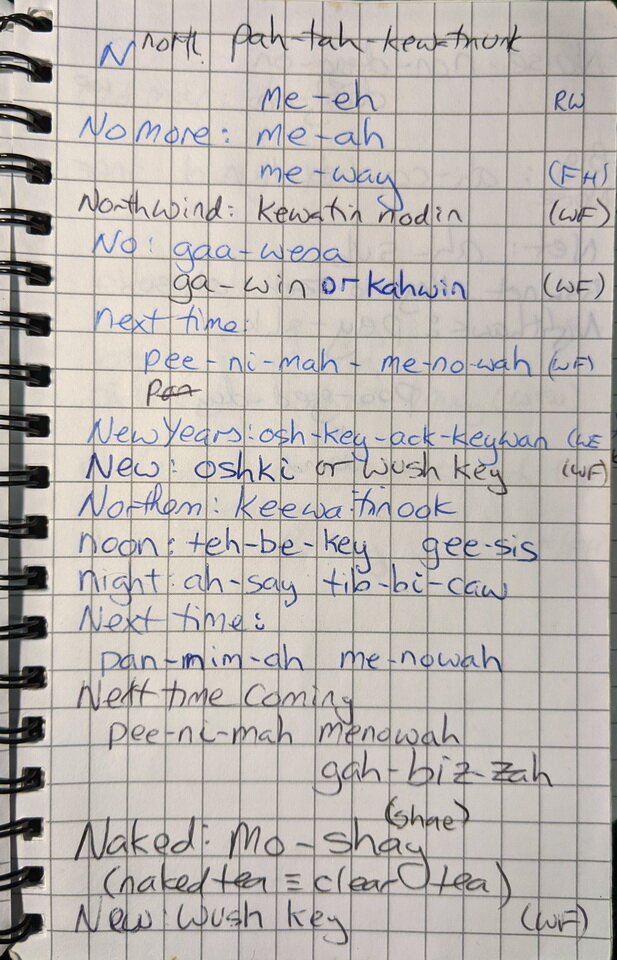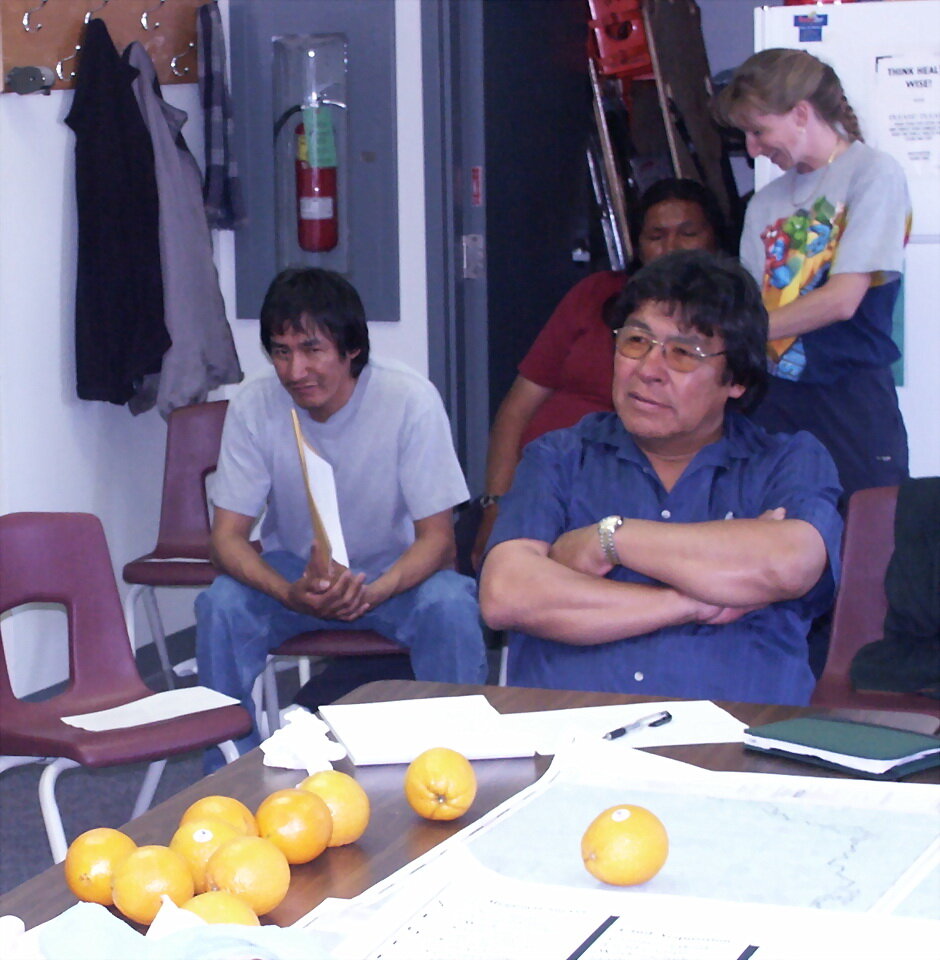Far North Rambles #36: Words You Can’t Say On Radio
Every language has its share of words you can't say on live radio. Sometimes you learn about those words when you use an English word, that means something quite different in another language, or when you mispronounce an indigenous word you are learning. You know immediately that you have crossed into new territory when you get a completely different reaction than you expected.
During our Far North travels, we enjoyed learning about different cultures as well as new words and simple phrases in the local First Nation language. In most communities, that learning became part of our formal meeting ritual as well as an informal learning on the streets when we walked around. I carried a pocket notebook to recorded new words and phrases taught to us and to dig out a word or phrase to use during conversation (Photo 1). I don’t know the syllabic sounds so I would phonetically write new words in my home-made dictionary, as my ear heard the sounds. I struggled with the Ojibway (Anishinaabemowin) and Oji-Cree languages, and I am no way near proficient. Sadly I just could not wrap my tongue around the Cree language.
Photo 1: A sample page from my home-made dictionary of Ojibway and Oji-Cree words and phrases we learned in Far North First Nation communities of Ontario.
The main reasons to try to learn some First Nation words and phrases was to show respect, to gain insights into First Nation culture, to try to communicate with elders, and it was a fun experience. While we had some “formal” teachers, every community person became a teacher when we tried to speak their language during meetings and on the streets.
I was occasionally reminded about my terrible pronunciation. Some words, when pronounced slightly differently, meant something quite different. Sometimes it meant something quite inappropriate. One funny example surfaced at a meeting with Chief and Council of Neskantaga First Nation (Photo 2).
Photo 2: Chief Peter Moonias (arms crossed), Neskantaga First Nation and Lori Churchill standing in the background. To the best of my recollection, this was the meeting where we learned that the name of a colleague meant something quite inappropriate in the dialect of Neskantaga First Nation. Photo by Andy Fyon, Lansdowne House (community of Neskantaga First Nation), May 28, 2003.
At that time, Lori Churchill (Ontario Geological Survey at the time) and I travelled together to the remote communities. During that meeting, Lori temporarily left the meeting to “go for a little walk”. I have no recollection how the topic changed, but in her absence, we started to talk about a Government colleague who had been involved in the nuclear disarmament and destruction of nuclear weapons in Europe. I mentioned his name - “Leo Owsiacki”. The meeting room erupted into roars of laughter. It turns out, with a slight pronunciation twist, that word has a very inappropriate meaning in their dialect. It is a word with a meaning that you would not use on the radio. To ensure they heard me correctly, I was asked several times to repeat the word, which I did, to a chorus of laughter. Of course, I asked what it meant. I was given an explanation seconds before Lori returned to the meeting room.
Lori asked what all the laughter was about. I was instructed by Chief Peter Moonias, or perhaps by Wayne Moonias, to explain to Lori, because we worked together. I did not explain and appealed to “host explains” rule, but, none of the Neskantaga political leadership would explain either. I don’t know if anyone ever explained the meaning of that word to Lori, but I know I did not. Perhaps it is something she can ask, as a meeting ice breaker, at her next meeting with Neskantaga First Nation .
Every language has its share of words you cant say on live radio. You just don’t know when you will stumble onto one of those words, but when you do, you get a completely different reaction than you expected.
Andy Fyon, Oct 2, 2020 (Facebook, Oct 2, 2020).
Have A Question About This Note?


